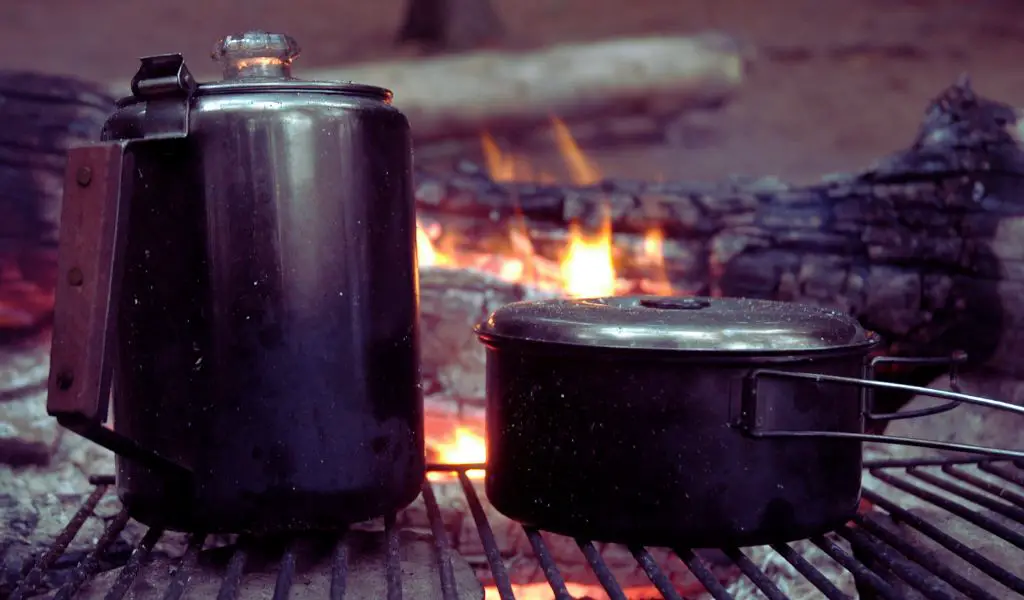When it comes to going on a camping trip, one of the most essential aspects to consider is the food you will bring along.
Traditional camping meals often involve heavy cans and perishable items that can take up valuable space and spoil quickly.
However, there is an alternative that is both lightweight and delicious – freeze-dried meals.
This article will explore the benefits of freeze-dried meals and how they can revolutionize your camping cuisine.
Table of Contents
The Advantages of Freeze-Dried Meals
Freeze-dried meals have gained significant popularity among campers and outdoor enthusiasts for several reasons.
Firstly, they are incredibly lightweight and compact, making them ideal for backpacking trips or any adventure where space is limited.
Since water is removed from the food through the freeze-drying process, the meals are significantly lighter without sacrificing taste or nutritional value.
Secondly, freeze-dried meals have an extended shelf life compared to traditional camping foods.
This is due to the removal of moisture, which prevents bacterial growth and spoilage.
With freeze-dried meals, you can stock up on your favorite dishes without worrying about them spoiling before your next camping escapade.
Another advantage is the ease of preparation.
Freeze-dried meals typically come in lightweight, resealable pouches that require minimal equipment.
All you need to do is add hot water and let the food rehydrate for a few minutes.
This convenience saves precious time and effort, allowing you to focus on enjoying your adventure rather than spending hours cooking and cleaning up.
The Variety of Freeze-Dried Meals
One of the significant misconceptions about freeze-dried meals is that they are limited in variety and lack taste.
However, this couldn’t be further from the truth.
The market for freeze-dried meals has expanded significantly, offering a diverse range of options to cater to various dietary preferences and cultural tastes.
You can find freeze-dried meals containing anything from classic favorites like pasta dishes and hearty stews to exotic international cuisines.
Vegetarian and vegan options are also widely available, ensuring that everyone can enjoy a satisfying and delicious meal while camping.
With the growing demand for healthier options, many freeze-dried meals are now made with natural ingredients, low sodium levels, and without artificial additives.
Tips for Choosing and Storing Freeze-Dried Meals
When selecting freeze-dried meals for your camping trip, there are a few factors to consider.
Firstly, it is essential to choose meals that suit your dietary needs and preferences.
Whether you follow a specific diet or have allergies, make sure to read the nutritional information and ingredient list to ensure the meal aligns with your requirements.
Additionally, be mindful of the portion size.
While many freeze-dried meals are designed for single servings, others may be larger to accommodate multiple people.
Opt for individual-sized packages if you are camping alone or select larger packs if sharing with a group.
As for storage, it is best to keep freeze-dried meals in a cool, dry place.
Airtight containers or resealable pouches can help prevent moisture and maintain the quality and taste of the food.
Remember to check the expiration date before embarking on your camping trip, and rotate your stock periodically to ensure freshness.
FAQs
Q: Are freeze-dried meals nutritious?
A: Yes, freeze-dried meals maintain their nutritional value because the freeze-drying process preserves most of the nutrients present in the original food.
However, it is always a good idea to check the nutritional label to ensure the meal meets your specific dietary requirements.
Q: Can freeze-dried meals be packed for longer trips?
A: Absolutely! Freeze-dried meals are perfect for longer trips due to their extended shelf life.
Just make sure to pack them in a secure and dry place to preserve their quality.
Q: Are freeze-dried meals expensive?
A: While freeze-dried meals may be slightly more expensive than their traditional counterparts, they provide excellent value for money considering their convenience, long shelf life, and ease of preparation.
Moreover, the cost can vary depending on the brand and specific meal.
Q: Can freeze-dried meals be cooked without hot water?
A: Hot water is generally recommended for rehydrating freeze-dried meals as it helps restore their original taste and texture.
However, in cases where hot water is not accessible, you can use cold water and let the meal rehydrate for a longer period.
Note that the taste and texture may be slightly different when using cold water.




